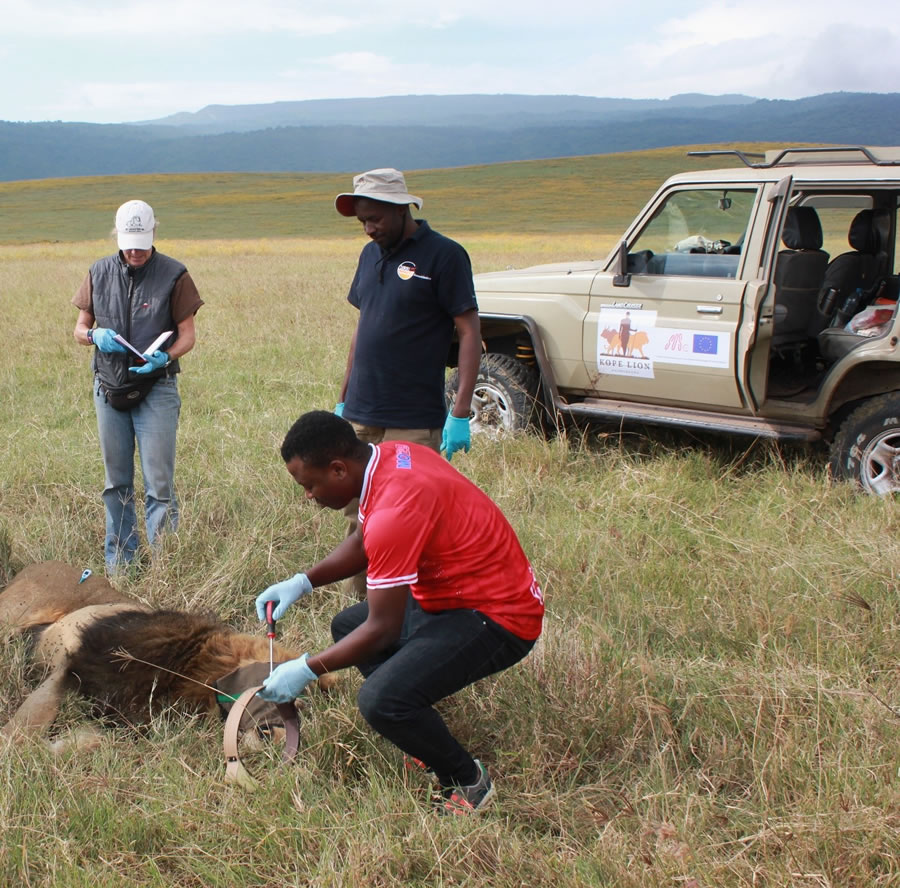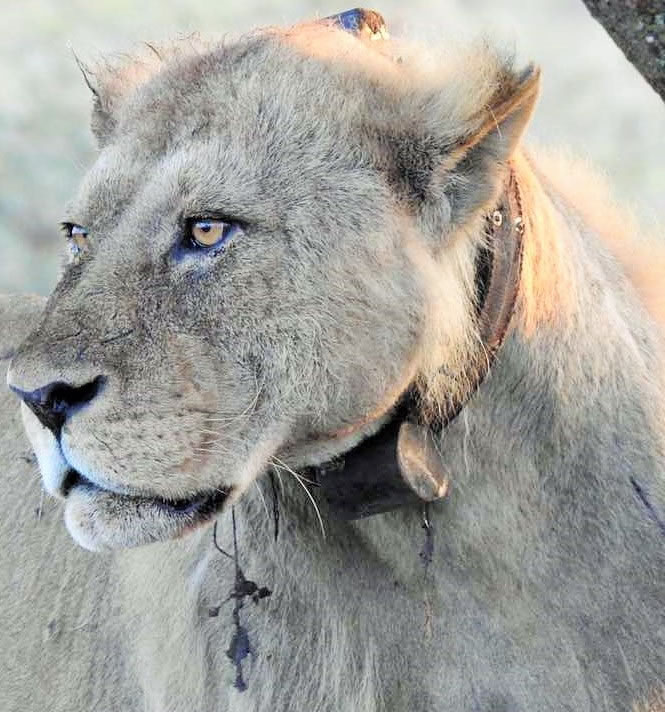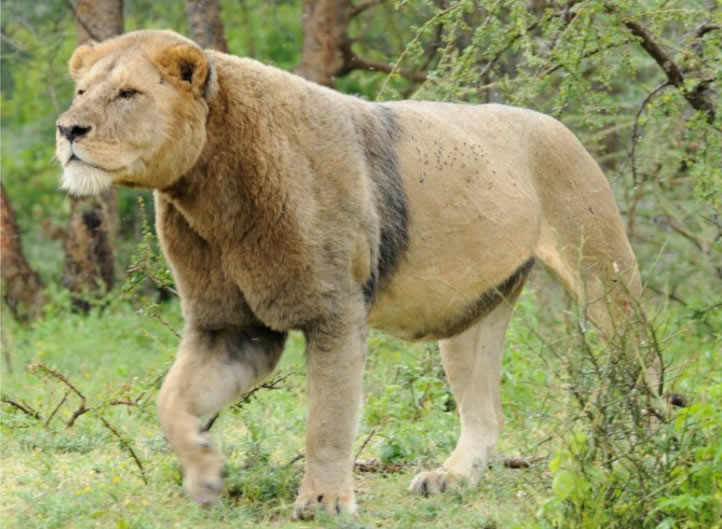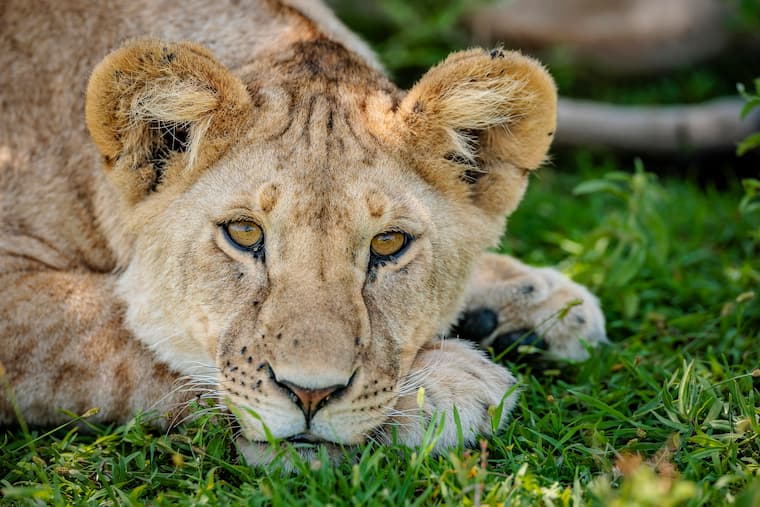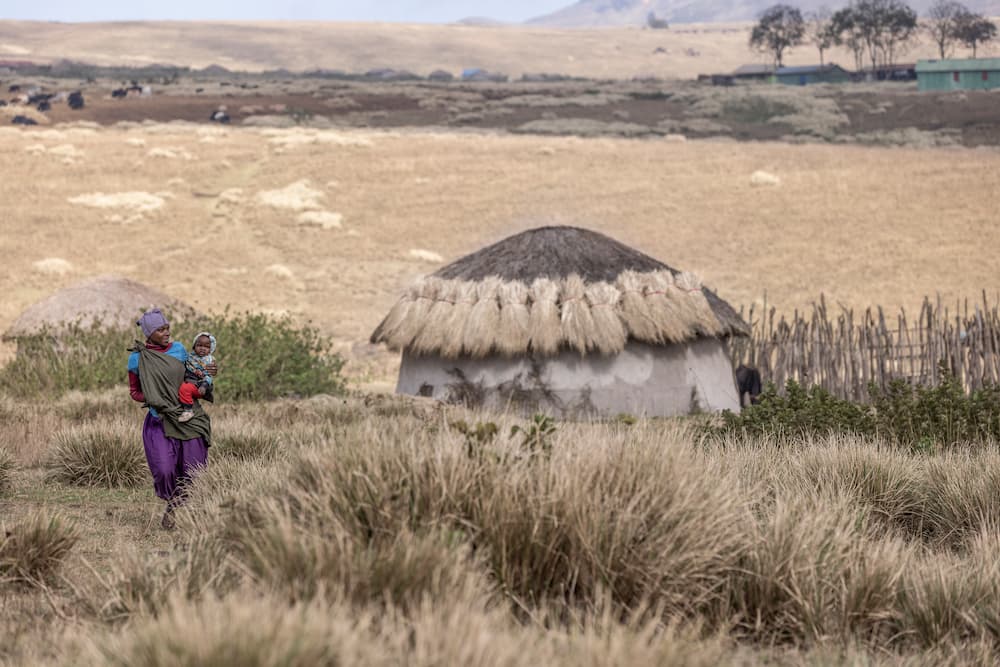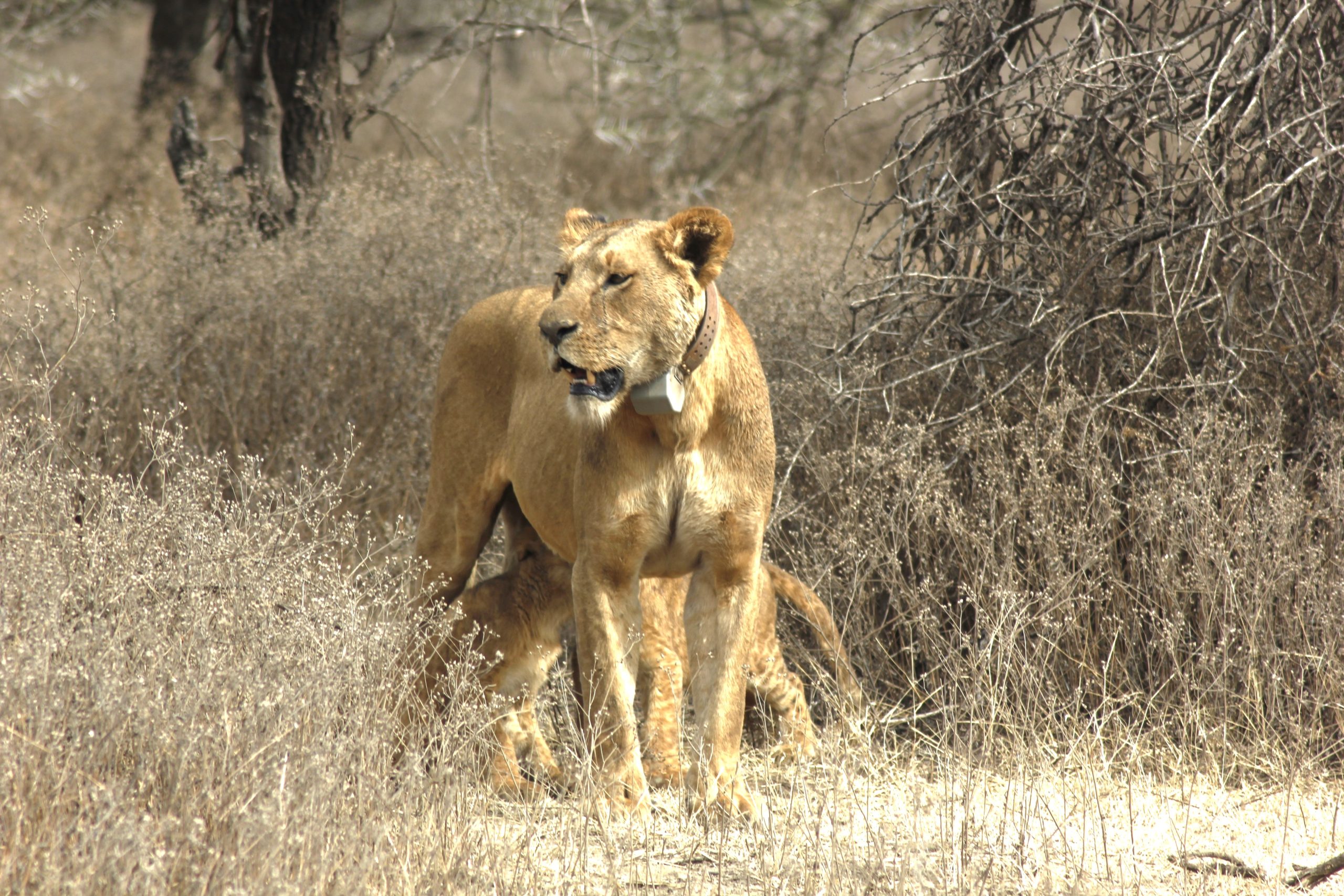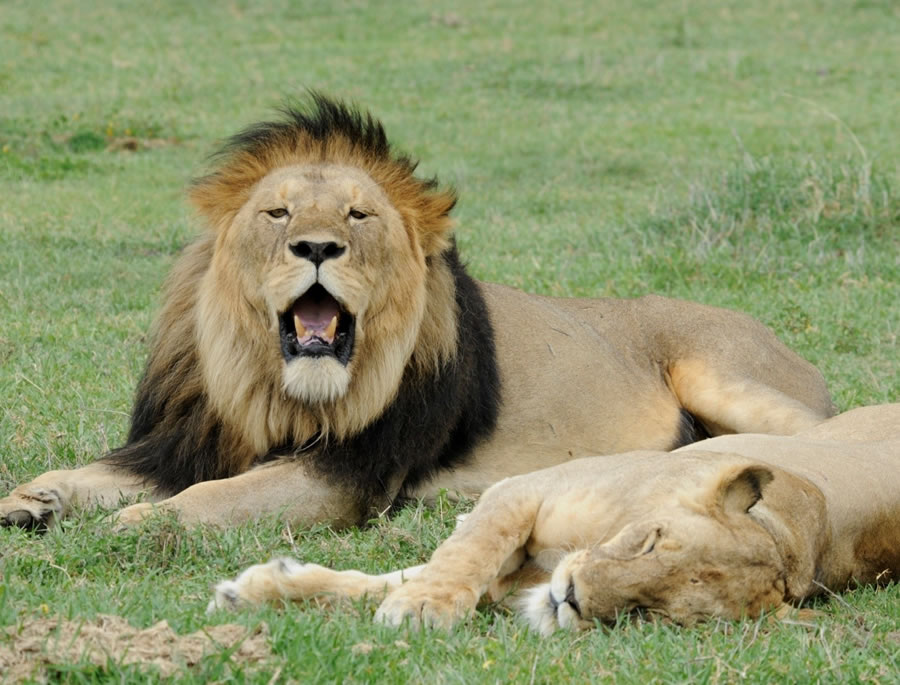
Kalamas – a trickster and the most handsome of lions
We had our first observation of Kalamas in 2014 from tour-guides in the SW part of NCA – a distinct male with the patches of long dark hair on his lower belly. In 2015 he appeared on a camera trap photo, in the Lake Eyasi escarpment. As we tried to get more observations by help of call-ups and tracing his tracks, his elusive behaviour of avoiding roads and paths had our team name him “Kalamas” (meaning “Trickster”, in the Maa language). Our first good sighting of him was in November 2015, when Roimen found him mating with a female on the Crater floor. Whisker-spot pattern identified, and his year of birth estimated to 2010 – a male in his prime, and clearly attractive among the lionesses.
We continued monitoring Kalamas over the next years, from the odd camera trap photo and visual observation. Initially he had a partner – slightly less hairy-bellied “Mr.X”. They continued shifting between the Crater highlands, with occasional visits into the Crater floor, and the Maswa/Mwiba area SW of NCA – locations that are 70 km apart. In 2016 TAWIRI and the management of Mwiba managed to deploy a GPS collar on Kalamas, and his long seasonal movements were confirmed to be dry season in the Crater highlands, and wet season on the SW plains.
In late 2017, over a 2 months’ span, Kalamas for unknown reason lost all his mane and all long body-hairs – all of it! Only by his whisker-spot pattern and the now failing collar confirmed this was the same lion. A good season, feasting of migratory wildebeest, soon had Kalamas back in shape, again decorated with dark massive mane and belly hair.
We kept monitoring Kalamas from GPS collars, and from occasional sightings in and around the Crater. When in areas of people and livestock, he largely stays out of trouble – his appetite is tuned to buffalo, zebra and eland – only rarely does he snatch a cow. His elusive, non-threatening behaviour and his massive, stunning looks have gained him fame among everyone – from lionesses to community people, rangers, and tour-guides.
Since 2019 he was nearly “lost” to us, until we found him again in the Crater in May 2022 and managed to collar him. He is now a 12-year-old male, the usual extent of a male’s lifespan. His body looks a little weaker, but his face still beautiful. Still the wanderer, staying out of trouble with brief visits with lionesses – but no sticking around to take responsibility. We hope Kalamas has shared his seeds, and that his gentle, trickster manners will continue.

